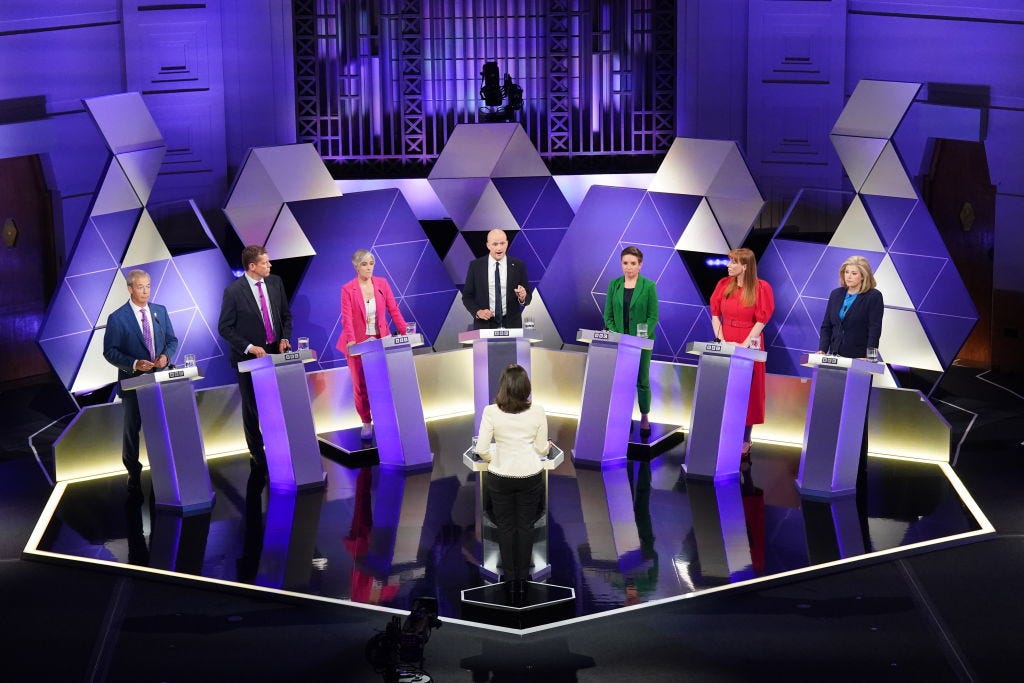How the value divide is challenging Britain's two-party system
A guest article from Sir John Curtice and Lovisa Moller Vallgarda
Lawrence is on holiday, but will be back next week with a post on the aftermath of Assad’s overthrow in Syria and the consequences for the region.
This week we have a bonus post on UK politics from this month’s guest authors: Professor John Curtice and Lovisa Moller Vallgarda. Professor Curtice will be known to you all as the BBC’s election guru, and is also Professor of Politics at the University of Strathclyde. He he writing here in his capacity as a senior fellow for the National Centre for Social Research (NatCen). Lovisa is Director of Analysis at NatCen, and was previously Head of Analysis at Engage Britain.
During the election campaign John and Lovisa wrote a post for us breaking down the UK electorate into six voter types. In this post - with exclusive new data - they look at how those groups voted and the movement between them over the period running up to the election. And they raise they question of whether the fragmentation of British politics is going to be a permanent phenomenon - a question I’m going to return to early in the New Year.

The 2024 election left British politics looking more fragmented than ever. Although elected with a large overall majority, Labour’s 35% share of the GB vote was the lowest ever for a government with any kind of parliamentary majority, let alone one of 174.
Meanwhile the Conservatives, with 24%, recorded their worst performance ever. In combination, the two parties that have long dominated British politics won just 58% of the vote, the lowest ever tally since Labour displaced the Liberal Party as the Conservatives’ principal opponents in 1922. Yet the traditional third party of British politics, the Liberal Democrats, won only 12%, well below anything it (and its predecessor parties) secured between 1974 and 2010.
The party was overtaken by Reform UK, whose 15% was the highest ever vote won by a ‘fourth’ party in the UK, while, at the same time, the Greens secured what for them was a record 7% of the vote.
This fragmentation raises an important question: is the century old dominance of British politics by two parties, Conservative and Labour, who primarily compete for the centre ground of British politics, at risk of being replaced by a more diverse multiparty environment? In this guest post we address that question by showing that the outcome of the 2024 election reflects a sharp values division which means the Conservatives and Labour can no longer expect to win elections simply by occupying the centre ground.
Keep reading with a 7-day free trial
Subscribe to Comment is Freed to keep reading this post and get 7 days of free access to the full post archives.





